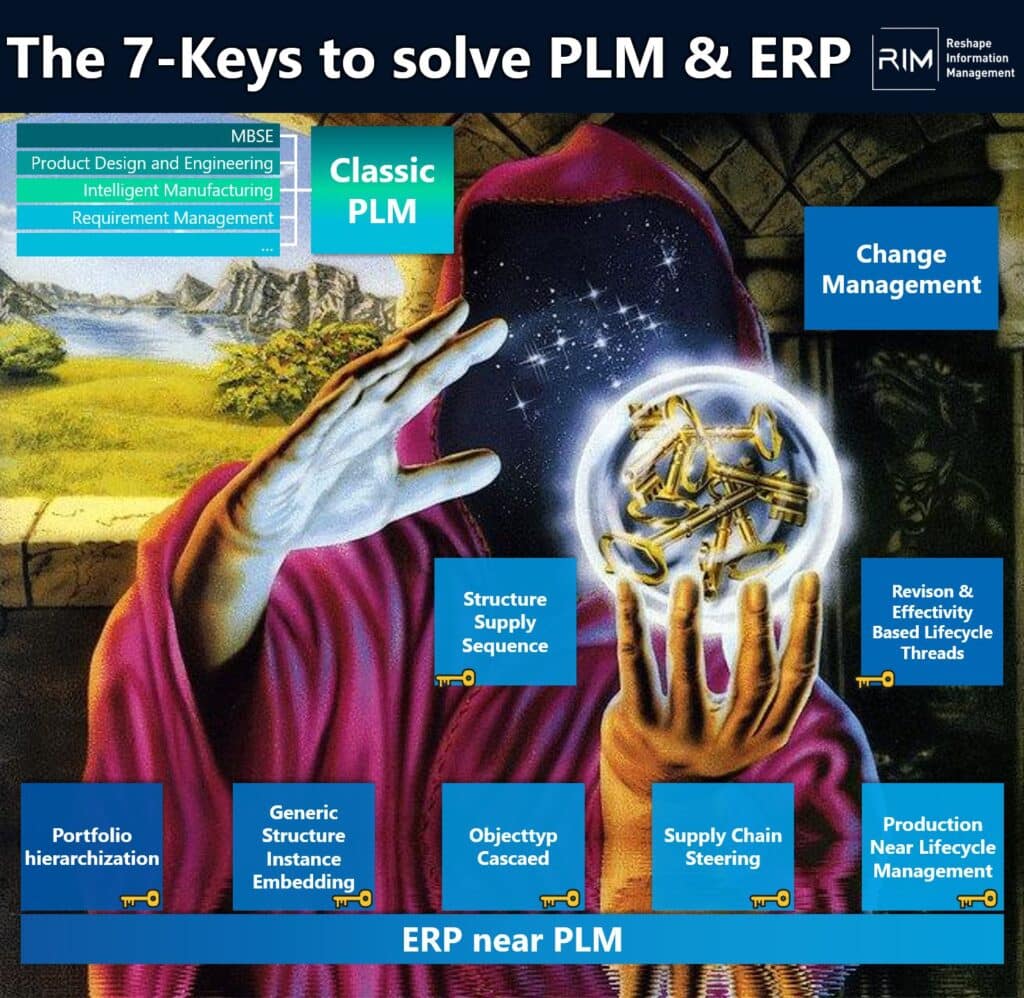A conversation with Professor Dr.-Ing. Jörg W. Fischer, Steinbeis entrepreneur at the Steinbeis Transfer Center Computer Application in Mechanical Engineering (STZ-RIM), who gives 3 formative impulses on corporate strategy for resilience and sustainability. This is the ultimate success code for the future of companies! How can we solve the most complex business and technological challenges of our time and make companies fit for the future? Steinbeis expert Professor Dr.-Ing. Jörg W. Fischer spoke to TRANSFER about this. He is convinced that companies can only be and remain successful if they question everything that already exists and adapt to new requirements in an agile manner while still retaining their own identity.
Professor Fischer, what strategic priorities should companies set today in order to be successful tomorrow?
This question is complex, as companies today are confronted with numerous challenges. On the one hand, there are the "classic" issues such as growing market complexity, the management of this complexity, customer-specific smart products and digitalization. On the other hand, new topics are constantly emerging, such as the Supply Chain Duty of Care Act and the topic of resilience, which is becoming increasingly important. There is much discussion about resilient supply chains and resilient companies. These developments are contributing to an increasing trend towards plant networks. For example, a company could move particularly energy-intensive production steps to locations with lower energy costs. Local legal framework conditions also play a significant role here.
Companies are currently under enormous pressure: on the one hand, they have to constantly deliver innovative products, but on the other, they are confronted with many problems such as supply chain issues. The key question is therefore: what can companies do to remain competitive in the long term? There are two dimensions to the answer: The first is the timeliness of the measures, i.e. whether the focus is on short-term success, medium-term objectives (in three to five years) or long-term prospects (five to ten years). The second dimension is the current market situation of the respective company. Based on these considerations, targeted measures can then be derived which, depending on the situation, achieve short-term effects or have medium to long-term effects.
You use the "strategy cascading" approach in your consulting. Can you explain what this means in more detail?
It is crucial for companies to specifically address the question: What are our goals and where do we want to go? When I began to work intensively on digitalization topics, I noticed that a company's product structure is significantly influenced by its strategy. When I asked my customers about their corporate strategy, the answers were often shockingly unclear. This is how we came to strategy consulting and developed the methods that are necessary for effective strategy work.
With our "strategy cascading" approach, we support our clients throughout the entire strategy development process. This begins with the formulation of the strategy, includes the definition of objectives and extends to the measurement of success. In this way, we help our clients to identify the necessary competencies, define the relevant fields of action and clearly structure and formulate the tasks in these fields. We also support them in implementing the strategy. We therefore offer our clients a comprehensive all-round package. I like to compare this approach to a North Star: first, we help the company to clearly define this "North Star" - the overarching goal. We then accompany the development of a step-by-step staircase that paves the way to this star.
How do your customers actually benefit from this approach?
When a company comes to us with an issue or problem, we start with a method workshop to identify problems and goals. We use a specially developed "map" system - known as company cubing - which helps companies to clearly formulate their goals and identify areas for action. Together with our client, we define the current status and the goal at different levels of abstraction. In the end, we have a cascade of these maps that enable the company to plan and prioritize strategies precisely, which is particularly important for SMEs. One example is the classification of materials according to availability in order to always have the materials in the required quantity without accumulating excessive stocks on the one hand, and to avoid bottlenecks on the other.
We work like a team of doctors: we analyze the state of the company, identify priorities and develop targeted measures - from strategy to software implementation. Our aim is to combine consulting, management, methods and IT implementation to create customized and sustainable solutions.
Your service portfolio also includes the area of "Industrial Data Science", what is special about it and how do companies benefit from it?
Industrial data science is a special method that combines industrial processes with modern data analysis tools. The aim is to gain deeper insights into company systems and deliver precise, meaningful analyses. It is not just about collecting data, but also about interpreting it correctly in the context of company processes and supporting targeted decisions.
Many companies measure their key figures such as delivery times, but often without the right context. With our method, we can statistically evaluate such data and make the true state transparent - it's like an ultrasound device for companies. We help not only to describe what is happening, but also to understand why it is happening and how to improve it.
Our approach goes far beyond simple business intelligence: we not only show how well a company is doing, but also which levers it needs to pull in order to become more successful in the long term. We are like "company doctors" who take a close look, ask the right questions and develop solutions that are tailor-made and feasible.
One final question for you: What do you personally see as the key to a corporate strategy for resilience and sustainability?
Above all, resilience in entrepreneurship means being prepared for various challenges - be it market requirements, supply chain problems or production capacities. The key to this lies in sound portfolio management, which makes it possible to react quickly to changes, and the ability to design production processes flexibly and with foresight. Effective supply chain management and the selection of critical materials are also essential. A "hybrid construction kit" for the supply chain can help to flexibly adapt production to changing market conditions.
Sustainability is also a key issue that is increasingly coming into focus. Here, it is important to consider at all levels - from product development to the supply chain - how to act in a more resource-conserving and environmentally friendly manner. This includes not only the choice of materials with lower CO₂ emissions, but also the optimization of processes, such as the use of compressed air in production, which costs a lot of energy. Small adjustments in many areas can bring big savings and increase a company's sustainability. The key is to implement sustainability in a targeted and strategic manner - for example by making conscious decisions in product development, process design and the selection of suppliers. Sustainable corporate management should not be limited to superficial measures, but should be based on an in-depth analysis and a clear plan.
Resilience and sustainability require a deep understanding of corporate processes and the ability to continuously question and improve them. Companies must be able to make transparent decisions and base them on facts. This is the only way they can hold their own on the market and against external challenges in the long term.




